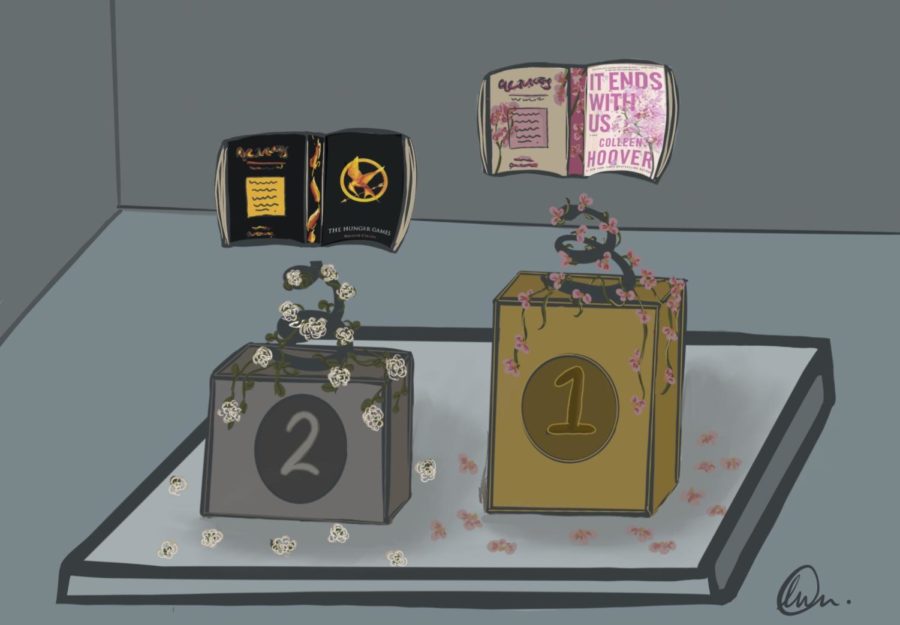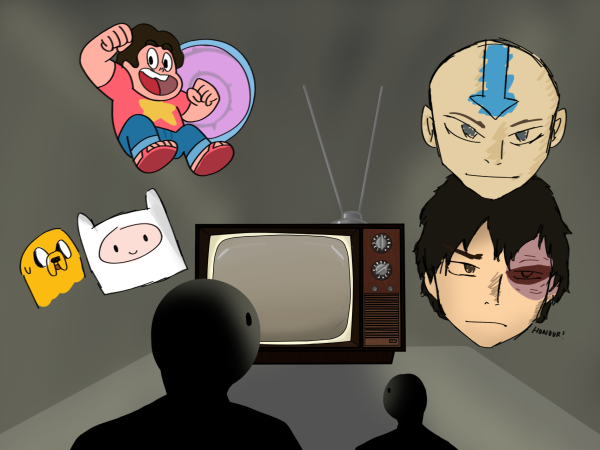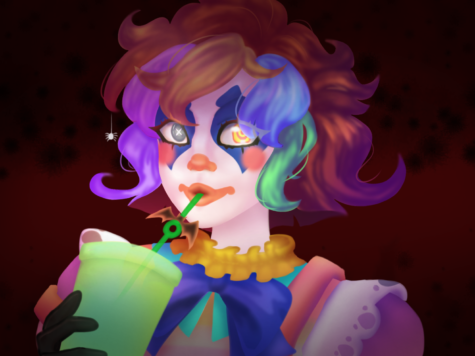The Downfall of the Dystopian Teen Genre
April 4, 2023
The mid-2010s was for some, highly characterised by the books and media that teenagers and young adults alike were engrossed in. 2014 saw the release of The Maze Runner and Divergent, and The Hunger Games made headlines in 2012, and again this year with the film adaption of the newest prequel to the series. Over the past month or so, I have seen a resurgence of the mid-2010 teen dystopian genre on many social media platforms. I ended up rewatching The Maze Runner last week for the first time since it came out, and if I’m completely honest, I really enjoyed it. I know that my enjoyment of these films as an adult is in part due to them having some sentimental and nostalgic value to me – I’ve gone so far as to reread some of these books recently just to critique them from an objectively better set of eyes – but I also think that I enjoyed them because the genre later died out and morphed into something objectively worse, leaving the better films to shine.
When The Hunger Games hit cinemas, it was hugely successful. There is some argument that these teen dystopian movies were so appealing to a young audience that they were starting to become more aware of the world around them and started to feel discontent with it. The one thing that these films have in common is discontent and anger. The Hunger Games tackles the idea of a corrupt government, The Maze Runner explores developing your own sense of identity in a world that doesn’t want you to, and other film franchises were able to combat other similar issues but still be quite unique. So, what happened?
I have two theories for this. Number one is that studios did not pick up on the fact that the targeted audience had grown up by the time the last few films belonging to this genre came out. 2016 saw two films come out that should have been more popular and might have been if they were released a few years earlier. The Fifth Wave, which followed teens post-alien invasion, and the third movie in a 4-movie instalment for the Divergent series, Allegiant Part One. I think the latter made a fatal error in splitting itself up into two parts and trying to drag the series out past 2016, well after this genre had already run its course. It was so bad that they cancelled the final film, and The Fifth Wave faced a similar fate as the sequel book never got an adaption. And these aren’t the only franchises that bombed. The Mortal Instruments was a very popular book series in this same period but failed twice after an attempt at a movie series and Netflix rebooting it as a TV series in 2016. But again, I think the target audience had moved on and had grown up, but these films were also targeted to too young of an audience and changed too much from their source material.
The second theory is that after the height of the genre’s success, the movie market overall became too repetitive, too congested, and too mechanic. A good example of this outside of the YA dystopian genre is the current constant churning of Marvel films. Don’t get me wrong, I love a lot of these films and still enjoy watching them with friends and the like, but after Covid caused film production delays everywhere, we now have about 20 shows and films out at any given point that should have been stretched out across a longer period to allow better editing and production value, as well as plot lines that people actually wanted (spoiler alert for Antman 3, but there are theories that the plot was changed after filming due to the film release’s timing, and scenes were rearranged to create a ‘new’ storyline – leaving it to feel a bit choppy). I loved WandaVision for example, and Spiderman: No Way Home (although this also played on nostalgia) but was somewhat disappointed by Thor: Love and Thunder and even by the last Antman film. Now to look back at the YA dystopian genre. When churning out these YA films for the sake of profit, they fail to listen to their audience or source material and make unwelcome changes to the story that people dislike for the sake of production. This isn’t an issue exclusive to today, either. The original Percy Jackson films aged the characters up, despite the book author’s protests, but something like The Hunger Games drastically changed Effie’s presence in the Mockingjay films after discussions with the author and that was received overwhelmingly better by the audience. Studios as of late are catching on to the success of series like The Hunger Games and The Maze Runner, even book adaptions that weren’t dystopian but had similar reader audiences and success like Harry Potter and Twilight, and have said, “Hey, that made a lot of money. What hasn’t been adapted yet that we could buy the rights to?”. As a result, you get adaptions like The Fifth Wave and The Darkest Minds that failed so badly that they’re barely acknowledged by their fanbases. Even something like the original Percy Jackson films, which were canned as well, are spoken about fondly by their audiences and have reboots coming up that people are interested in.
In 2023 there is now a rush to push out films and tv shows, sometimes even adaptions, with plotlines that no one asked for. (Netflix, I’m looking at you and your awful handling of Riverdale). We even have books that have quickly gained popularity on ‘Book Tok’ in the last few years and are being made into movies or limited series. Admittedly some of these I am excited for, but I also can’t help but be reminded of the peak of YA book-to-film adaptions in the mid-2010s and worry about how well they stick to the beloved source material. Now that there’s a resurgence in interest from teenagers and nostalgic adults today for this genre, maybe it stands a chance again, provided it listens to its audience and takes its time putting it all together.
*This article was written as a part of Teacher Takeover.












